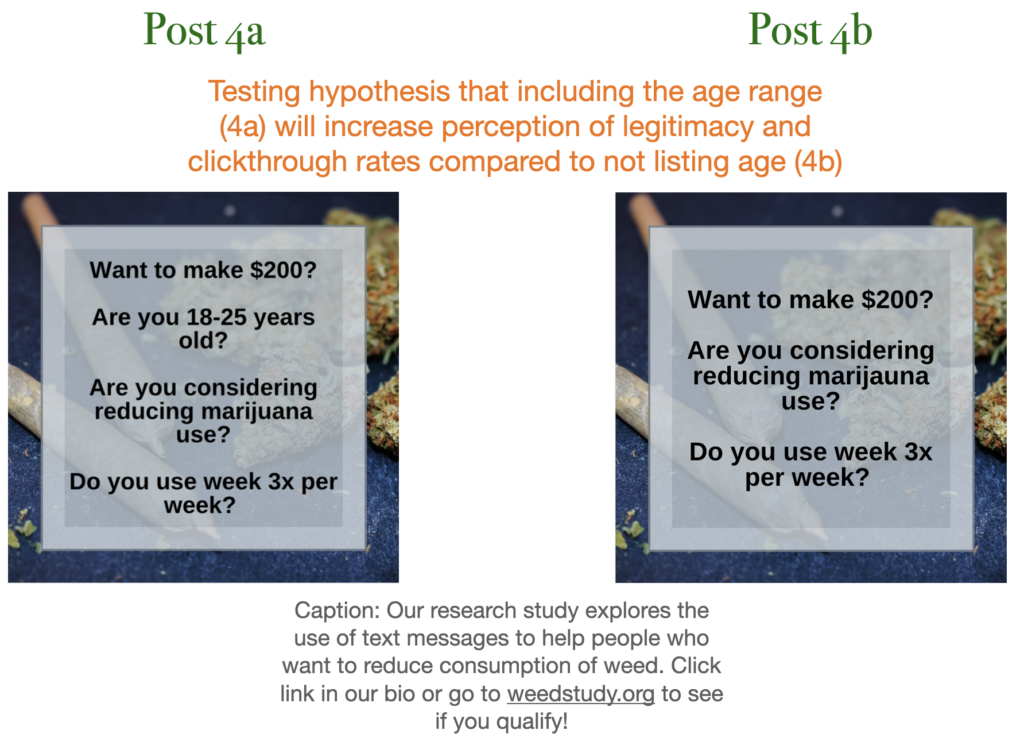I do some work for various non-profits and my most recent client is a group of researchers with an NIH grant to use text messaging as a potential intervention tool for people who want to curb their weed consumption. The name is funny and appropriate: The Weed Study. They were having trouble recruiting participants so we developed a social media plan that is going pretty well so far. One of my favorite things about unknown areas like this is A/B testing different ideas in real time, in this case on Instagram. For example, I would have thought putting at least a LITTLE bit of information in an ad would be good, but I was wrong. Out of the following two posts…

…the one on the left did better (111 clicks / $0.41 per click) than the one on the right (23 clicks / $0.64 per click). Of course, the people who clicked the left image may not have been intent on reducing weed consumption. With the next set of posts, I had an idea that adding a specific bit of information might increase engagement:

This time, I was correct: the post with age information did WAY better (7372 reach / 189 clicks / $0.32 per click) than the identical post without (99 reach / 0 clicks). If this was a research paper I would try to come up with an explanatory mechanism or theory for why this occurred, but the fun part about consulting is casting a wide net and letting the data dictate which posts keep running. Right now the most successful posts got a bigger budget put behind them and I look forward to getting more results!
I should note, we had to turn off commenting for the posts, because a lot of people (understandably) commented something along the lines of (and I’m quoting one of the early responses): “Who the f&#( wants to smoke LESS weed?!” The study makes no judgments on marijuana use in general; it only offers a way to help people who have already decided to use it less. The next project strives to use a similar structure to help individuals who struggle with anxiety or depression.